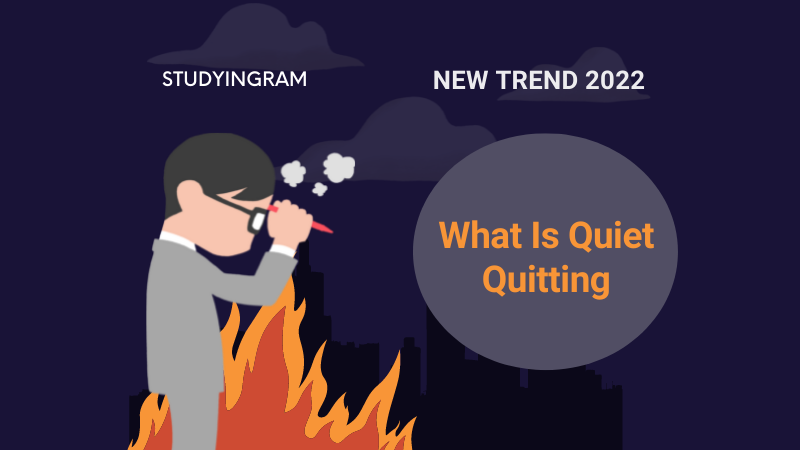
A new trend in business life What is Quiet Quitting? Who is inclined to resign silently and what are employers losing with the concept of Quiet Quitting? With the concept of Quiet Quitting becoming popular, it has short and long-term effects on both employers and employees. Although the Quiet Quitting initiated by employees who experience burnout syndrome and are unhappy at work sounds good for employees, it both affects the careers of employees and reduces the productivity of companies.
What is Quiet Quitting?
Quiet Quitting; it means reducing the workload without resigning, not going beyond the determined job descriptions and minimizing the work. Someone who enters the Quiet Quitting movement; does not do any work other than the duties assigned in the institution where he/she works, performs the assigned work at the minimum level of efficiency and is not involved in any process other than his own work. Many employees who think that they do not see the value they deserve in the institution they may enter the silent resignation process even though they are not aware of it. People who think that they work hard but do not get paid for it both financially and morally, enter into a routine working process and limit their efforts to their institutions. A question arises here; If people are not satisfied with their job, why don’t they resign and go into a passive non-working process?
- The desire to stay out of the comfort zone
- Economic and financial concerns
- Failure to receive compensation upon resignation, waiting for the expulsion process
- Environmental and family pressure
- Perceiving resignation as a failure
The Origin of the Concept of Quiet Resignation: 996 and Generation Z
The number 996 is great for employers, but a nightmare for employees! The number 996, which refers to working 9 in the morning – 9 in the evening and 6 days a week, is quite common in the working culture. In fact, there are hours determined by the labor law of each country, and this is 45 hours a week! However, when it comes to implementation, unfortunately, many workers work well over 45 hours. In the past, response was limited due to the high working hours, the blessing of overwork and the lack of social media. This situation started to change with the entry of the age group (those born between 1995 and 2009), which is defined as the Z generation, into business life. Generation Z is impatient, does not want to spend too much time at work and wants to earn money by working less. For this reason, the concept of silent resignation initiated by the Z generation finds even more meaning.
NATO Jobs Worldwide
Reasons for Quiet Resignation
- Burnout Syndrome
- not getting the attention it deserves
- mobbing
- Insufficient working opportunities
- Insufficient salary
Quiet Quitting Results:
- Creativity is blunted as employees leave themselves fallow.
- Employees think that they are taking some kind of revenge, and their organizational commitment is weakened.
- In the long run, the productivity and profitability of companies decrease.
- The human resource efficiency of companies is decreasing.
How Can Silent Resignation Be Prevented?
In fact, since it is a two-sided process, the concept of “empathy” stands out as a key concept between the employee and the employer. In the process, there is usually a “win-win” or “lose-lose” relationship between the employer and the employee, in which both parties are affected. The company’s valuing its employees, rewarding success both materially and morally, providing quality working conditions for its employees are the items that can prevent silent resignation. The employee’s dedication to work, focusing on success, producing innovative projects, and acting in accordance with the company’s core values and vision will make the process successful.
Gökhan Turgut Ünal